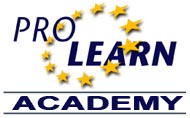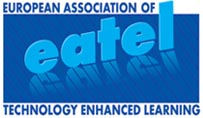Second Workshop on Story-Telling and Educational Games
Organisers
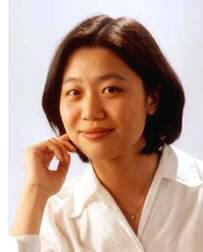
Yiwei Cao is a doctoral researcher at the Information Systems group, RWTH Aachen University. She receives a diploma in computer science from RWTH Aachen University and a bachelor in architecture from Shanghai Tongji University. Her research interests are multimedia community information systems, metadata standards for multimedia, spatial data and cultural information, data uncertainty management, and mobile social software. She works on the research cluster "Ultra High-Speed Mobile Information and Communication" (UMIC) of the Excellence Initiative of German National Science Foundation (DFG).
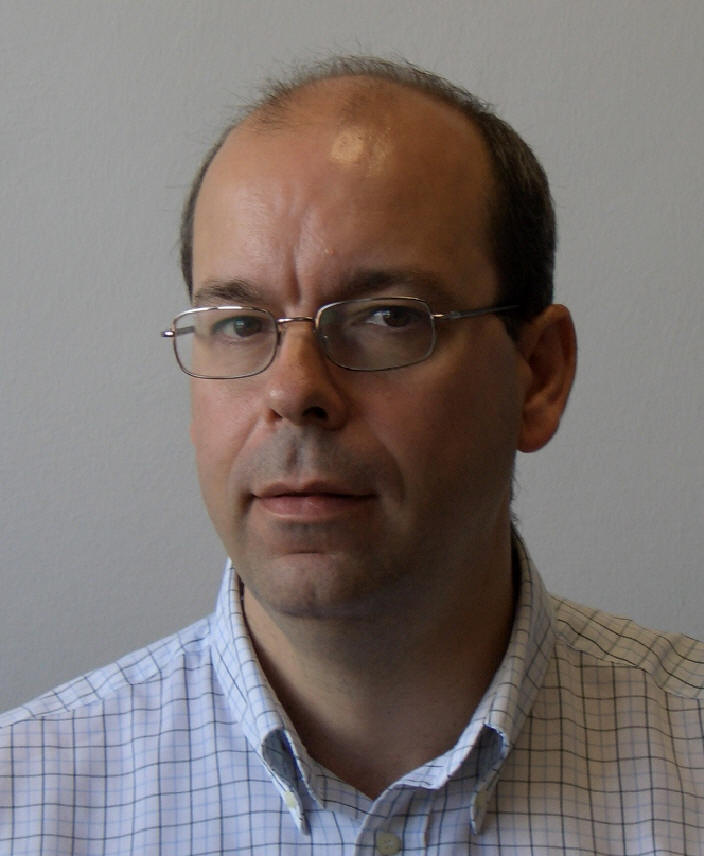
Baltasar Fernández Manjón has a PhD in Physics and he is an Associate Professor in Computer Science in the Complutense University (UCM) in Madrid. Currently he is Vice-dean for Research and External Relation of the Faculty of Informatics, and former Academic Director of the Computer Science Technical School of Centro de Estudios Superiores Felipe II (Aranjuez, Spain). He has written more than 60 published papers in refereed journals, books and conferences. He is member of the Working Group 3.3 "Research on the Educational uses of Communication and Information Technologies" of International Federation for Information Processing (IFIP) and has been involved in the organization or program committee of more than 15 conferences about e-learning or educational uses of CITs. He is the co-leader of the UCM e-learning research group (www.e-ucm.es) and his main interest are educational uses of communication and information technologies, e-learning standards, educational games and XML technologies. More information is at www.e-ucm.es.

Stefan Göbel holds the diploma and Dr.-Ing degree in Computer Science (Dipl.-Inform.) from the Technical University of Darmstadt. Since December 2008 he is a scientist at KOM - Multimedia Communications Lab and httc at the TU Darmstadt and a head of Serious Games group. In 2003, 2004 and 2006 Stefan Göbel was a conference chair of TIDSE - Int'l Conference on Interactive Digital Storytelling and Entertainment and in 2005, 2006, 2007, 2008 - a chair of the annual science meets business event GameDays.
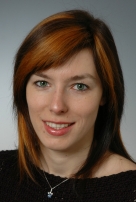
Anna Hannemann is a researcher at the chair of Information Systems and Databases (Informatik 5) at RWTH Aachen University, Germany. She holds a diploma in computer science from RWTH Aachen University. Within the DFG-founded cluster project "Context Adaptive Interaction in Cooperative Knowledge Processes" (CONTici, www.contici.org), she works on the project part "Traceable Requirements Engineering for Communities of Practice". Her research interests include Analysis of Digital Social Networks, and Design of Innovative Social Engineering Techniques. Together with Yiwei Cao she has organized STEG'08 in conjunction with EC-TEL08.
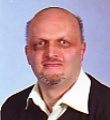
Cord Hockemeyer studied computer science with psychology as a minor at the Technical University at Braunschweig Germany. After his graduation he started working as a researcher at the Department of Psychology, TU Braunschweig; the focus of his research being on procedures for the adaptive assessment of knowledge. Since 1996, Cord Hockemeyer has been with the Cognitive Science Section at University of Graz, Austria, his research concentrating on personalised technology enhanced learning. During this time, he has been participating in about ten EC-funded research projects on TEL, more recent ones including the projects ELEKTRA and 80Days on game-based learning. Since Feb 2009, he is also with the Knowledge Management Institute at Graz University of Technology, working in the EC-funded projects TARGET (on serious games) and ROLE.
Emmanuel Stefanakis holds a Dipl.Eng. in Surveying, an M.Sc.E. degree in Geomatics and a Ph.D.Computer Engineering. Since 1992, he has been involved in several research projects funded by the E.U., the Canadian Government and the Greek Secretariat of Research and Technology. In 2000, he joined the Department of Geography at Harokopio University of Athens, as a Staff Member. His research interests include Web Mapping and Services, Geographic Information Systems, Knowledge and Database Systems, and Cartography. He has over 40 articles in refereed journals and international conferences in the above areas.
Call for Participation
Early bird registration: July 17th, 2009
In conjunction with the 8th International Conference on Web-based Learning (ICWL 2009)
Based on the successful experience form the 1st STEG we plan to organize a one-day workshop, which covers a wide range of research issues about story-telling and educational games including story and game design paradigms, Web 2.0 based story-telling and gaming scenarios, advanced story-telling and educational gaming technologies and platforms for technology enhanced learning. It aims at a state-of-the-art discussion on advanced research and open issues on story-telling and educational gaming among multimedia communities, with special focus on how both approaches can be combined.
Program
| 8.45-9.00 | Opening and Welcome |
| 9.00-9.25 | Florian Mehm, Sabrina Radke and Stefan Goebel. 80Days: Adaptive Digital Storytelling for Digital Educational Games |
| 9.25-9.50 | Ioanna Christou, Nikolas Perdikaris, Panagiotis Tragazikis, Alexandros Douros, Electra Galani, Dimitris Gouscos and Michalis Meimaris. “The Magic Potion” – An Adventure Game for Learning |
| 9.50-10.15 | Casper Harteveld, Stephan Lukosch and Rens Kortmann. Improving Serious Game Design with Collaborative Storytelling |
| 10.15-10.45 | Break |
| 10.45-11.10 | Eeva Turtiainen, Seugnet Blignaut, Christo Els, Teemu H, Laine and Erkki Sutinen. Story-based UFractions Mobile Game in South Africa: Contextualization Process and Multidimensional Playing Experiences |
| 11.10-11.25 | David Farrell, Patty Kostkova, Donna Lecky and Cliodna McNulty. Teaching Children Hygiene Using Problem Based Learning: The Story Telling Approach to Games Based Learning (Work-in-Progress) |
| 11.25-11.40 | Haroula Papadaki, Eleni Gadolou and Emmanuel Stefanakis. Collaborative GIS platforms for Storytelling - Case Study: Battleship Averof (Work-in-Progress) |
| 11.40–12.05 | Min Chen, Mizuki Miyashita, Beau Ufen, Bradley Bahls and Tyler Julian. A Multimedia Scripting System for Endangered Language Learning |
| 12.10-13.00 | Brainstorming of the Gemstone proposal |
| 13.00-14.00 | Lunch together with the participants |
| 14.00-14.25 | Helen Ashman, Wayne Gartner and Kirsten Wahlstrom. War games: the role of role-playing in assessment |
| 14.25-14.50 | Enrique López Mañas, Javier Torrente, Pablo Moreno-Ger and Baltasar Fernandez-Manjon. Re-Telling History: A Web-based Educational Videogame for Teaching History |
| 14.50-15.15 | Michael Kickmeier-Rust, Dietrich Albert and Elke Mattheiss. An Educational Guide to Planet Earth: Adaptation and Personalization in Immersive Educational Games |
| 15.15-16.30 | Wrap-up and Brainstorming |
Workshop topics
- Story-telling and game theories
- Story and game design paradigms for Web-based Learning
- Augmented story-telling and gaming
- Story-telling and educational gaming with social software
- Story-telling and educational gaming with mobile technologies
- Cross-media/transmedia story-telling and gaming
- Computer gaming for story-telling (Game design for narrative architectures)
- Multimedia story and game authoring
- Story-telling and educational gaming applications
Registration
Scientific researches and industry partners within story-telling and educational gaming domain are invited to participate in STEG'09. Please use the conference website to register:
http://www.hkws.org/events/icwl2009/registration.html
Early bird registration: July 17, 2009
Submissions
Authors are invited to submit original unpublished research as full papers (max. 10 pages) or work-in-progress as short papers (max. 5 pages). All submitted papers will be peer-reviewed by three members of the program committee for originality, significance, clarity and quality. Accepted papers will be published online as ICWL workshop proceedings as part of the CEUR Workshop proceedings series. CEUR-WS.org is a recognized ISSN publication series, ISSN 1613-0073.
Authors should use the Springer LNCS format (http://www.springer.com/lncs). For camera-ready format instructions, please see "For Authors" instructions at http://www.springer.de/comp/lncs/authors.html.
To submit your paper please use STEG submission website: https://www.easychair.org/login.cgi?conf=steg09
Important dates
Paper Submission: June 15, 2009
Notification of acceptance: July 10, 2009
Camera Ready Submission: July 30, 2009
Workshop date: August 21, 2008
Background and Rationale
Already in 2008 the full day workshop on Story-Telling and Educational Gaming (1st STEG) took place successfully bringing together researchers of story-telling and gaming domains from all over the world, triggering fruitful discussions and producing interesting publications. The information on the last year event can be found on the workshop web site under http://www.prolearn-academy.org/Events/steg08. One selected publication on "Gaming between Real and Virtual Life" was accepted to International Journal on TEL. This positive experience can serve as an evidence for the importance of the workshop topic in the modern research world. To reinforce the motivation based on the success of 1st STEG the background and rationale of the workshops area will be described.
Stories and story-telling are cultural achievements of significant relevance even in modern times. Nowadays, story-telling is being enhanced with the convergence of sociology, pedagogy, and technology. In recent times, computer gaming has also been deployed for educational purposes and has proved to be an effective approach to mental stimulation and intelligence development. Many conceptual similarities and some procedural correlation exist between story-telling and educational gaming. Therefore these two areas can be clubbed for research on Technology Enhanced Learning (TEL). Many facets of story-telling and educational gaming emulate real life processes, which can be represented either as complex story graphs or as interleaved sub-problems. This model is congruent with that used for Technology Enhanced Learning in vocational training. TEL in vocational training requires learning models that focus more on the process and less on the content.
The main difference between educational games and story-telling lies in the user's motivational point of view. Story-telling aims at reliving real life tasks and capturing previous experiences in problem-solving for reuse, while educational games reproduce real life tasks in a virtual world in an (ideally) engaging and attractive process. Nevertheless, educational games require highly specialized technical and pedagogical skills and learning processes to cover the topics in sufficient depth and breadth. Imbalance between depth and breadth of study can lead to producing trivial games, which in turn can lead to de-motivating the learner.
While the integration of learning and gaming provides a great opportunity, several motivational challenges (particularly in vocational training) must also be addressed to ensure successful realization. Non-linear digital stories are an ideal starting point for the creation of educational games, since each story addresses a certain problem, so that the story recipient can gain benefit from other users' experiences. This leads to the development of more realistic stories, which then provide the kernel for developing non-trivial educational videogames. These stories can cover the instructional portion of an educational game, while the game would add the motivation and engagement part.
In summary, this workshop aims at bringing together researchers, experts and practitioners from the domains of non-linear digital interactive story-telling and educational gaming to share ideas and knowledge. There is a great amount of separate research in these two fields and the celebration of this workshop will allow the participants to discover and leverage potential synergies.
Organisers
Yiwei Cao, RWTH Aachen University, Germany
Stefan Göbel, TU Darmstadt, Germany
Anna Hannemann, RWTH Aachen University, Germany
Cord Hockemeyer, University of Graz, Austria
Baltasar Fernández Manjón, Complutense University, Spain
Emmanuel Stefanakis, Harokopio University of Athen, Greece
Program Committee
Amanda Gower (British Telecommunications plc, UK)
Anna Hannemann (RWTH Aachen University, Aachen, Germany)
Bailing Zhang (Victoria University, Melbourne, Australia)
Baltasar Fernández Manjón (Complutense University of Madrid, Madrid, Spain)
Carlos Delgado Kloos (Carlos III University, Spain)
Carsten Ullrich (Shanghai Jiaotong University, Shanghai, China)
Christian Guetl (Institute for Information Systems and Computer Media (IICM), Graz University of Technology, Austria)
Cord Hockemeyer (University of Graz, Graz, Austria)
Emmanuel Stefanakis (Harokopio University of Athen, Athen, Greece)
Georg Thallinger (Joanneum Research, Graz, Austria)
Harald Kosch (University of Passau, Germany)
Jose Luis Sierra (Complutense University of Madrid, Madrid, Spain)
Manuel Fradinho (Cyntelix, Ireland)
Marc Spaniol (MPI, Saarbruecken, Germany)
Mathias Lux (Klagenfurt University, Austria)
Michael Granitzer (Know Center, Graz, Austria)
Michael Hausenblas (DERI, National University of Ireland, Galway, Ireland)
Michael D. Kickmeier-Rust (University of Graz, Graz, Austria)
Nalin Sharda (Victoria University, Melbourne, Australia)
Pablo Moreno-Ger (Complutense University of Madrid, Madrid, Spain)
Ralf Klamma (RWTH Aachen University, Aachen, Germany)
Romulus Grigoras (ENSEEIHT, France)
Ronan Champagnat (La Rochelle University, La Rachelle, France)
Stamatia Dasiopoulou (ITI Thessaloniki, Greece)
Stefan Göbel (TU Darmstadt, Darmstadt, Germany)
Stephan Lukosch (TU Delft, Delft, The Netherlands)
Vincent Charvillat (ENSEEIHT, France)
Werner Bailer (Joanneum Research, Graz, Austria)
Wolfgang Gräther (Fraunhofer FIT, St. Augustin, Germany)
Yiwei Cao (RWTH Aachen University, Aachen, Germany)
